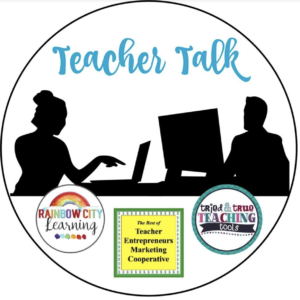Teachers have more power than they think in helping students spend “green time” with Mother Nature. Every year children spend more than 1500 hours on their cell phones.* That’s a lot of often mean, not green, time. Excessive smartphone use is associated with psychiatric, cognitive, emotional, medical and brain changes that should be considered by health and educational professionals.**
Parents, of course, have the ultimate power over cell phone usage, but, sadly, some of them don’t use it, due to various circumstances. But most parents do ask, “Did you finish your homework?” This is a clue for us—why not make assignments that have something to do with an activity OUTSIDE the home, not just in Earth Month, but at least twice every month, the entire school year? The concept computes to about 18 lessons a year per teacher, but when different subject teachers do this, the effect increases exponentially.
No matter what the subject, no matter what the season, inventive teachers can often design lessons that relate to the subjects they are introducing, teaching, or reviewing that will also require children to put down their cell phones and do their homework outside. Here are just a few ideas, but, with a little creativity, many, many, more can be designed.
1. Writing: descriptive paragraphs involving the five senses at least four times a year, in different seasons. Explain that they must be outside to jot ideas because many more ideas will come to them there. Also, comparison/contrast paragraphs as well.
2. Science: Dig a little hole in the dirt in your playground or back yard. Describe what you find in detail in a list. Don’t forget to put the dirt back. Or…
3. Biology: Follow directions to plant a potato. It’s so easy. Keep one potato until it develops roots. Cut into 4 parts, each including a root. Dig 4 holes and plant each part about 5 inches down into the ground. Water once, unless experiencing a drought. Potato plants are very hardy. When they are about 10 inches high, dig out your treasures, wash, boil in water. Add a little butter and salt. Yum! The best potatoes you will ever eat! Write an essay about the process or a list with correct sequencing.
4. Math: Time neighborhood one-foot, two-feet, or three-feet races with friends. Chart the participants’ times.
5. Math: Graph giant steps and baby steps to neighbors’ houses.
6. Take a hike and chart the number of times certain animals are seen. Or choose an animal, bird, or insect seen and tell the class where you saw it. Explore information about it on the internet. Share with the class.
7. Compare/contrast the number of goals scored in one/half hour of any outdoor sports activity with parents or friends several days in a row.
8. Get a trash bag and disposable gloves and clean up litter on your street for 20 minutes. Tell the class what items you found, and /or describe people who gave you a complement while you were doing it.
9. Visit a local veterans’ memorial. Explain the war(s) involved and why you think the townspeople built it.
10. Ask your parents to take a 10-minute morning walk with you. Ask often until they do. On the way back home, race them there in a walking race– the kind of race where the walkers wriggle and sway with their feet firmly on the ground, to assure they are walking, not running. Explain your feelings during the walk in written or oral form.
11. Take a walk in the snow, sleet, or a light rain with no umbrella. Jump in snowdrifts or puddles. Describe your feelings before, during, and after this activity.
12. Read one chapter of a book on a porch, under a tree, or on a park bench. Describe the difference to reading in bed.
Motivated teachers can generate hundreds more. Share your ideas with fellow teachers. Not only can we make our children healthier, we can help them appreciate the world we have.
For an inexpensive Earth DAY script designed for easy reading over the school P.A. system, with very short parts and NO memorization, see Reading Spotlight’s
Earth Day Script: How Kids Can Help
For extra Earth Day fun for older students, check out Reading Spotlight’s
Similes About Nature Crossword Puzzle
See you outside this month!
© Reading Spotlight 2023
* https://www.mmguardian.com/blog/teenage-cell-phone-use
**https://www.frontiersin.org/articles/10.3389/fpsyt.2021.669042/full

Here are some other interesting posts about education from my friends at TBOTEMC:


